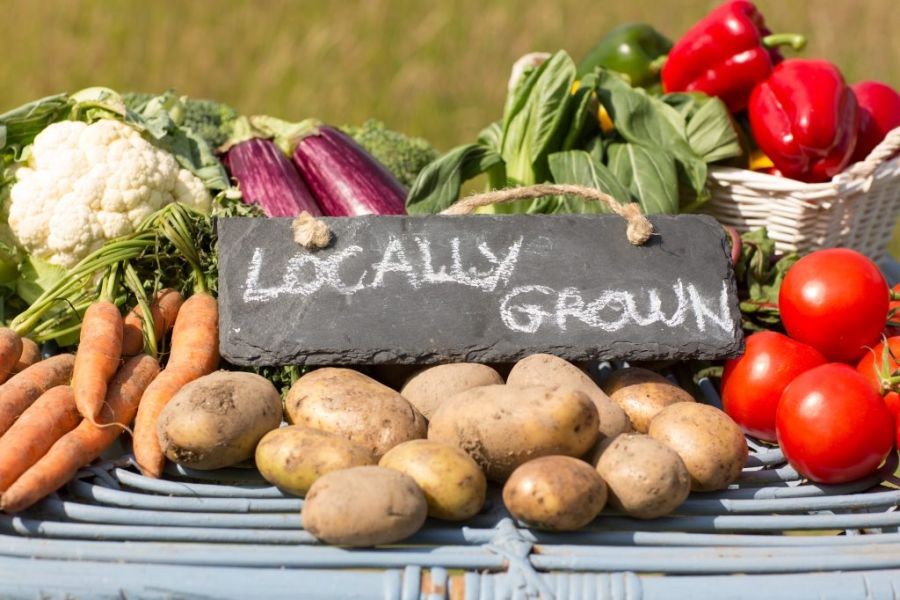New Zealand's economy is renowned for its rich natural resources, including timber, dairy, and minerals. However, an ongoing debate questions whether the nation should pivot more towards local production rather than exporting raw materials. This topic is gaining traction due to global trends emphasizing sustainability and localism, combined with increasing international competition and changing consumer preferences.
Current Landscape of New Zealand's Raw Material Exports
New Zealand has historically relied on the export of raw materials to sustain its economy. According to Stats NZ, in 2022, dairy products accounted for nearly 30% of the country's total exports, followed by meat and wood. The global demand for these commodities has fueled economic growth, yet it raises the question of long-term sustainability and economic resilience.
Case Study: Fonterra's Shift Towards Value-Added Products
Problem: Fonterra, New Zealand's largest dairy cooperative, faced declining profits due to fluctuating global milk prices, impacting farmer payouts and shareholder returns.
Action: To mitigate this, Fonterra began investing in value-added products like cheese and yogurt, targeting international markets with premium offerings.
Result: Within three years, Fonterra reported a 15% increase in revenue from value-added products, boosting profitability and stabilizing farmer payouts.
Takeaway: Fonterra's strategy highlights the potential benefits of transitioning from raw commodity exports to value-added production, offering lessons for other sectors in New Zealand.
Pros and Cons of Focusing on Local Production
Pros
- Economic Resilience: Developing local production can reduce dependency on volatile global markets.
- Job Creation: Manufacturing and processing industries offer a wider range of employment opportunities.
- Innovation & Competitiveness: Local production can drive innovation, leading to higher-quality products and enhanced competitiveness.
- Environmental Benefits: Processing locally can reduce carbon footprints associated with exporting raw materials.
Cons
- Initial Investment: Shifting to local production requires significant capital investment in infrastructure and technology.
- Market Risk: The domestic market may not be large enough to absorb the increased production, leading to potential oversupply.
- Skill Gaps: New industries may face challenges in finding skilled labor to support manufacturing and processing.
- Regulatory Challenges: Navigating local regulations can be complex and time-consuming.
Expert Opinion: The Future of New Zealand's Industries
Dr. Megan Woods, New Zealand's Minister of Research, Science, and Innovation, advocates for a balanced approach. She emphasizes the importance of investing in research and development to support local industries, stating, "New Zealand must leverage its natural resources while fostering innovation to create a sustainable industrial base."
Industry Insight: The Role of Technology in Local Production
Emerging technologies such as AI and automation present opportunities to enhance local manufacturing efficiency. According to a 2023 report by NZTech, automation could increase production efficiency by 30%, making local industries more competitive on a global scale.
Debunking Common Myths
Myth: "Exporting raw materials is always more profitable than local production."
Reality: While exporting can offer immediate returns, local production provides long-term stability and higher value addition potential, as evidenced by Fonterra's success.
Myth: "New Zealand lacks the infrastructure for advanced manufacturing."
Reality: With government support and strategic investments, New Zealand's infrastructure for advanced manufacturing is rapidly developing, supported by initiatives like the Provincial Growth Fund.
Myth: "Local production is not environmentally sustainable."
Reality: Local production can significantly reduce carbon emissions by minimizing transportation distances and fostering circular economies.
Future Trends and Predictions
According to a 2024 Deloitte report, the global trend towards sustainability and localism is expected to intensify, with predictions that by 2030, 50% of New Zealand's exports will comprise value-added products. This shift could redefine how New Zealand positions itself in the global market, emphasizing quality over quantity.
Conclusion
The decision for New Zealand to focus more on local production rather than exporting raw materials involves weighing the potential for economic resilience, job creation, and environmental benefits against the challenges of infrastructure investment and market risks. As global trends continue to evolve, New Zealand has the opportunity to redefine its economic strategy, fostering a more sustainable and competitive future.
What’s your take on this shift towards local production? Share your insights and join the conversation below!
People Also Ask (FAQ)
How does focusing on local production impact New Zealand's economy? Local production can boost economic resilience by reducing dependence on volatile global markets and creating jobs, according to Stats NZ.
What are the biggest misconceptions about New Zealand's export strategy? A common myth is that exporting raw materials is always more profitable. However, Fonterra's shift to value-added products shows the potential for higher profitability and stability.
What are the best strategies for implementing local production in New Zealand? Experts recommend starting with investments in technology and innovation, followed by strategic partnerships and market research to ensure successful implementation.
Related Search Queries
- New Zealand export economy
- Local production benefits
- Fonterra value-added products
- Sustainability in New Zealand industries
- Advanced manufacturing in New Zealand







































wolfgangxdy293
3 months ago